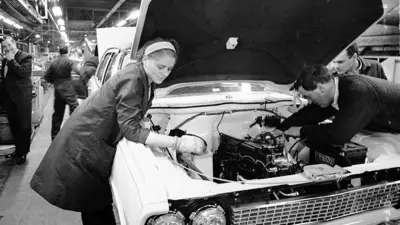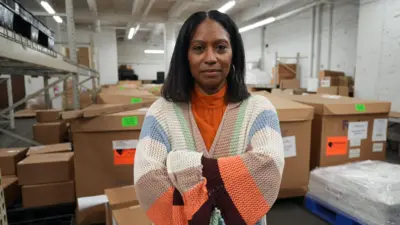We've updated our Privacy and Cookies Policy
We've made some important changes to our Privacy and Cookies Policy and we want you to know what this means for you and your data.
My Olympics: A blur for Millennium Stadium's Gerry Toms
Top Stories
In the second of a series on the Olympics experience, Gerry Toms, the manager of the Millennium Stadium in Cardiff, describes the intensity, punishing schedule - and surprises.
"The Olympics organisers Locog were responsible for the structure and the management for the games and they brought their plan to us. We worked with them to put that plan in place.
The intensity struck me: 11 games in 10 days. That was a punishing schedule for everyone - it was like groundhog day.
Normally, before a big rugby match, it's five days prepping and three days tidying up.
We just had enough time to get ready for the next one. They worked through the night and the next morning again and again and again.
Top Stories
It was an amazing blur for us in that respect.
Security was unlike anything we'd ever experienced. Scanners: everyone was searched every time, including me, it was without exception. I won't miss that.
Who would have thought back in 1999, when the stadium opened, that Cardiff would deliver 11 football matches for the Olympic Games? They would have called a doctor to have us certified.
The stadium brings the world to Wales - and it's done it.
We would have a full meeting the day before a game with all the departments - ticketing, catering, safety, cleaning. Everything had to be co-ordinated.
Top Stories
Everything was organised down to the fine detail, who was doing what and when, timing was everything - it's like sailing a ship.
The day of the game I'm around the stadium, meeting the heads of department checking through the issues. The success is always in the planning but there are things that are beyond our control and it alters our plan.
My job is to co-ordinate any changes to the plan that day. It's like a game of dominoes.
There was a pregnant pause and then the public arrived like a wave.
I think everyone was surprised by the interest in women's football in particular. They thought no-one was interested at first but that clearly was not the case.
The audience has been unique. A lot of people who came had never been to a big stadium event before. In some ways I don't think they were really interested in what happened and the sport - they just wanted to be part of the Olympics.
Some came without a home team to support, so they supported others, like Japan instead. That was nice.
There were families out to enjoy the day. There wasn't this partisan atmosphere that you usually have at matches, they just cheered good sport and if someone scored a goal, it didn't matter who it was, they just cheered.
I take complaints personally. Our job was to solve it on the day. Hundreds of people had not thought it through and thought they could just arrive an hour beforehand and collect their ticket and walk in.
People were turning up with suitcases and enough luggage to stay for a fortnight - all of that has to be searched by security. There were spare pairs of shoes, make-up bags, change of clothes.
Before the last two games we actually opened the doors two-and-a-half hours before the game.
'Intimacy'
There was a feeling of wanting to belong to something special.
In fact, on the last night some guys didn't arrive until half-time, they went in for 10 minutes and then left again. I thought there was something wrong so I asked if everything was okay and they said they just wanted to be able to say they were part of the Olympics. Then they went to the pub.
We've done two rugby World Cups but those games are spread out. We've just done 11 games in 10 days. That was a big ask.
We had so many games to fit in, that's why we started before the Olympics officially started.
We knew we had to get it right - and we did it."
On Wednesday, taekwondo Olympic champion Jade Jones's mother Jayne Ferguson will describe her experience of London 2012.
Top Stories
More to explore
Most read
Content is not available








